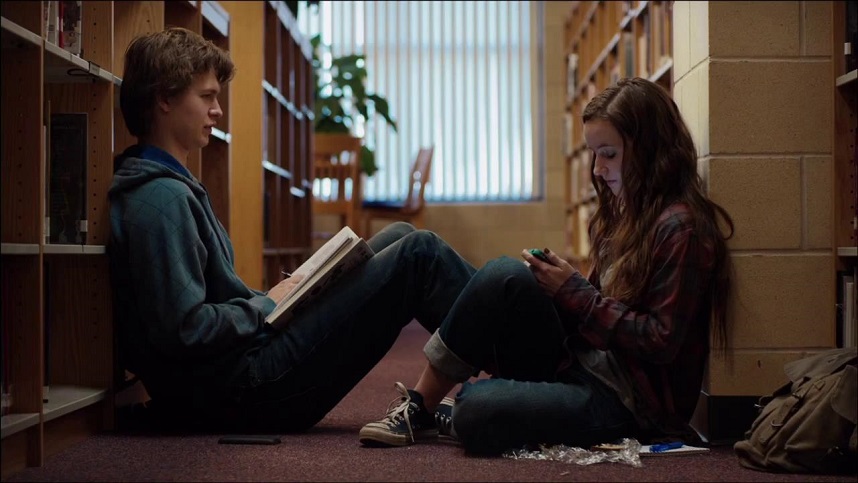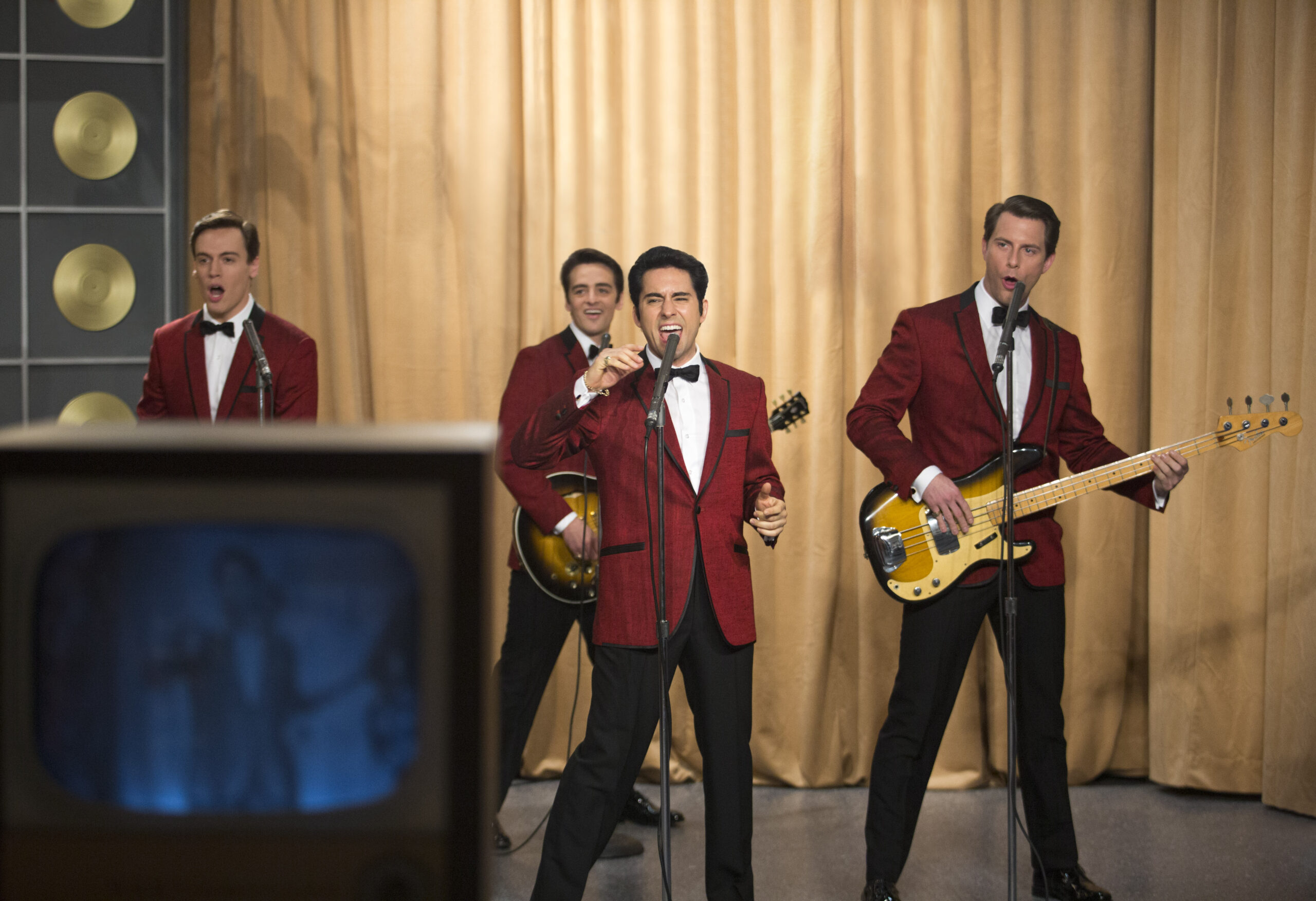Scanning the logline alone of Cord Jefferson’s American Fiction is enough to engender a double-take, although less for its audaciousness and more out of an unexpected sense of familiarity. The film is about a cantankerous Black writer, frustrated by how his work is received and reduced down to the topic of race — that’s not to mention how it languishes, unsold — who, in a fit of pique, writes an audience-pandering novel that propagates Black stereotypes about masculinity, crime, and urban life almost as a joke to his editor, only to become horrified when the book emerges as an unexpected literary sensation. On the face of it, the setup sounds remarkably similar to Spike Lee’s hugely divisive 2000 film Bamboozled, which was almost universally reviled at the time of its release only to gradually be reappraised over the ensuing decades (even joining the Criterion Collection a few years back).
The differences are readily identifiable — one is set in the world of publishing, the other in television; American Fiction’s protagonist played by Jeffrey Wright publishes under a pseudonym while Damon Wayans’ character is the public-facing creator of Mantan: The New Millennium Minstrel Show in Bamboozled; the levels of overtness in the respective satires differ greatly; etc. — but both films are essentially making the same argument: white audiences only respond to Black art that reinforces an ingrained sense of either superiority or pity. And yet, despite this — or perhaps because of it — American Fiction has found itself the darling of the festival season, having left the Toronto International Film Festival with the highly coveted People’s Choice Award, often pointed to as a harbinger of wider acceptance and Oscar love. The question, then, is thus: has the discourse around race changed so much over the past 20 years so that this subject matter is no longer alienating to mainstream viewers, or has Jefferson simply stumbled upon a more palatable way of presenting the material?
Not surprisingly, the answer is a little of both. American Fiction is a confrontational work, calling out blinkered, liberal presuppositions about the Black experience, the media, higher education, and even what it means to actually “listen to Black voices” (a line which, within the context of the film, generates one of its biggest laughs). It’s also arriving at a moment in history when recognizing and/or checking “privilege” is a part of people’s lexicon (at least for the sort of person who would seek out a film like this). That said, in its tone, rhythms, and dramatic shape, American Fiction comfortably resembles a studio comedy. Lee’s film may have foregrounded its exasperation in a way that made white audiences uncomfortable, but it’s just as likely that they were put off by the consumer-grade miniDV photography and mixed-media construction as they were all the antagonistic use of blackface. American Fiction’s aim is true and its targets worthy, but, by comparison, it’s inviting attacks from its flank for glibness or for flattering the same consumers it’s critiquing (the film also isn’t above reaching for the occasional low-hanging fruit or easy gag). And yet, that’s what makes it so effective as a Trojan Horse; it ingratiates itself to the very people and institutions it’s mocking, allowing people to laugh at the film even as they themselves are being called out as part of the problem.
Adapted from Percival Everett’s 2001 novel Erasure, American Fiction stars Wright as liberal arts professor and occasional author Thelonious Ellison — who goes by “Monk” throughout the film, for obvious reasons — who’s suspended from his day job at a Los Angeles-based university after a white student complains about the use of “the n-word” in class discussions on the works of Flannery O’Connor. Licking his wounds in his hometown of Boston, Monk splits his time between visiting with his upper-middle class family — as the only non-doctor in the family, he’s cast as the black sheep — and attending a literary conference where the star attendee is the young Black author Sintara Golden (Issa Rae). Sintara, an Oberlin grad who got her start as a reader at a prestigious New York publisher, is promoting her critically adored new book We’s Lives in Da Ghetto, a work whose Ebonics-inflected passages dedicated to “authentic” Black life in the inner-city cause Monk to wince upon hearing it read aloud. The book is presented as part of a larger cultural trend of Black art that privileges historical suffering, violence, and proud ignorance while ostracizing Black artists who choose not to embrace these tropes; amongst his many gripes, Monk resents that his novels are relegated to the African American studies section of the bookstore simply because he’s Black, arguing that the Blackest thing about them is the ink. Pushed to the breaking point after his most recent novel has stalled, while also making the rounds with publishers and simultaneously facing financial hardships due to caring for his sick mother (Leslie Uggams), Monk pours himself a drink and begins tapping out a tongue-in-cheek ode to absentee fathers, dope dealers, and gangbangers entitled “My Pafology” (later retitled, simply, “Fuck”). He sends the final product off to his beleaguered editor (John Ortiz) only in order to get a rise out of him, and in the long tradition of the American farce, this act naturally sets the publishing world afire.
Monk’s efforts to navigate this unexpected boost to his career, which is accompanied by a hefty advance, offers to sell the film rights, and a full on media tour — the book is published under the pseudonym “Stagg R Leigh,” with the author’s false claims of being a fugitive from the law allowing for the sort of anonymity required for Monk to further this ruse — are set against the backdrop of his personal life, which is notable for how smartly observed it is while reinforcing how fundamentally under-celebrated these specific dynamics are in contemporary art. After his sister Lisa (Tracee Ellis Ross) unexpectedly drops dead of a heart attack, Monk finds himself the primary caregiver and financial support system for his Alzheimer’s afflicted mother. His younger brother, Clifford (Sterling K. Brown), having recently come out of the closet following his divorce, can’t be depended upon for much of anything, what with all his energies focused on casual sex and cocaine. Monk is also in danger of tanking his new relationship with his next-door neighbor, Coraline (Erika Alexander), due to his resentment and self-loathing. And, on top of everything else, he somehow got roped into serving on a jury for a prestigious literary award alongside the aforementioned Sintatra; and wouldn’t you guess which book is suddenly in contention for the big prize. Of course, it would be unethical for Monk to assess his own work or even participate in the process, but then that would also require him coming clean to the world about “Fuck’s” true author.
It’s a clever structural trick by the filmmakers. On the one hand, we’re getting an acidic satire of white cultural elites all but tumescent over the idea of championing a poor Black artist — a product of the carceral system, no less — whose thug-like vernacular and “firsthand” accounts of deadbeat dads and slinging rock dovetail with their own preconceptions of authenticity; dismissing legitimate criticism of the work as insufficiently compassionate or being too insular (even when said critiques are coming from people of color). On the other, we’re getting rich, messy, interpersonal conflict centered around Black people of the exact sort Monk longs for; where the difficulties the characters face aren’t a result of the societal constraints frequently associated with race (even the decision to set the film in Boston, a city with a checkered past on this topic, is flipped on its head by a mid-film venue change to the family’s quaint vacation house by the shore). Instead, the film focuses on Monk’s professional disappointments, his contentious relationships with his mother and Cliff, his ambivalence about his father’s history of infidelities and eventual suicide, or even the mere fact that Monk’s a well-educated, grumpy malcontent and he likely invites misery on himself. At the same time, the film is willing to challenge Monk’s assumptions about representation, pushing back on his sweeping dismissals — and allowing the rebuke to come from Sinatra, with the film all but acknowledging that she and Monk are two sides of the same coin, while also allowing his “principled” grievances to come across as awfully petty and his worldview to appear as shortsighted as the intuitions he rails against (I.e. seconds after Monk claims race doesn’t play much of a role in his day-to-day life we watch a taxi cab fly past him to pick up a white lady half a block away). American Fiction seems to recognize it’s written itself into a corner as to how to satisfactorily resolve Monk’s dilemma and the solution it arrives at is, admittedly, a punt; invoking such films as Robert Altman’s The Player or, less notably, Clue. But, even in its indecisiveness, the film remains keenly aware of what’s expected of it, both as a serious-minded tract on race and art and as a broadly entertaining “awards player,” and chooses to thumb its nose at both. It’s a situation where winning an Academy Award or being completely overlooked by the establishment would be equally validating of the film.
DIRECTOR: Cord Jefferson; CAST: Jeffrey Wright, Tracee Ellis Ross, Issa Rae, Sterling K. Brown, Adam Brody; DISTRIBUTOR: Amazon MGM Studios; IN THEATERS: December 15; RUNTIME: 1 hr. 57 min.







